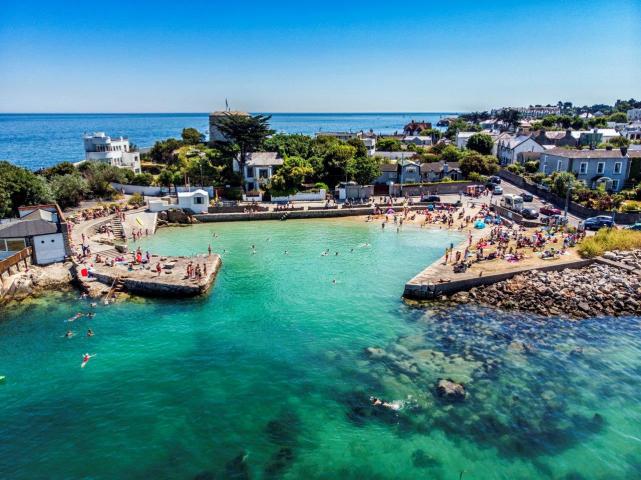Take care during warm weather especially when swimming
Take care during warm weather especially when swimming
As a warm weather spell continues across Ireland, the Irish Coast Guard, Water Safety Ireland, and the RNLI are appealing to the pubic to be attentive to their personal safety when engaging in any water or coastal activities.
The appeal comes as sea temperatures have reached a seasonal high and many people will be tempted to go for a late summer swim. An average of nine people drown every month nationwide and the organisations are urging the public to be mindful of the following advice during the current spell of warm weather.
- Never swim alone and ensure that somebody ashore is monitoring your activity.
- Only swim in areas with which you are familiar.
- Swim within your depth and stay within your depth.
- Where possible choose lifeguard protected beaches. Lifeguards will be patrolling blue flag beaches throughout the weekend. If you are swimming elsewhere, swim in areas that are known locally as safe and where there are ringbuoys present for rescues. Ask for local knowledge to determine local hazards and safest areas to swim. Pay attention to any safety signage
- Always supervise children closely and never leave them alone near water
- Never use inflatable toys in open water as a gentle breeze can quickly bring a person away from shore.
- Make sure that the water’s edge is shallow shelving so that you can safely enter and exit.
- The air temperature is warm but open water is cooler than air – avoid extended stays in the water as your muscles will cool, making swimming more difficult.
- Alcohol is a factor in one third of drownings. Do not mix it with water activities.
- To escape a rip current, swim parallel to the shore and then swim back ashore at an angle.
If you see somebody in trouble in the water:
SHOUT – REACH – THROWSHOUT to calm, encourage and orientate them;
- REACH with anything that prevents you from entering the water (clothing/stick);
- THROW a ringbuoy or any floating object to them.
- If you experience difficulty in the water, FLOAT TO LIVE. Tilt your head back with ears submerged, relax and try to control your breathing. Move your hands to help you stay afloat.
- When boating, always wear a correctly fitting lifejacket or Personal Flotation Device and have to hand a VHF radio and a fully charged mobile phone in a waterproof pouch.
If you see somebody in trouble in the water or along the coast, or think they are in trouble, dial 112 or use VHF radio Channel 16 and ask for the Coast Guard
News
View all
Have your Say for a Creative Day

St Patrick Brings Samba Spirit to Dún Laoghaire Parade Laun...





